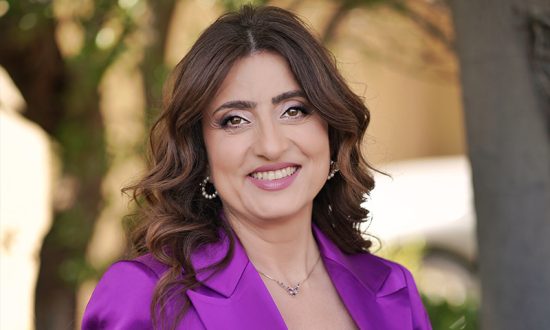Nancy Zakharia Ohanessian is a global HR and Talent and Organizational Development leader, and a certified coach and assessor. She draws on more than 15 years’ experience in business and HR practices within different industries and sectors. She is a strong believer in the importance of leveraging strengths and is passionate about leading personal and organizational growth and inspiring others to do the same.
With her coaching hat on, Nancy helps individuals deepen their self-awareness, understand the impact of their behaviours and make deliberate choices about opportunities on which to focus. She strives to make coaching and team work an enjoyable process of discovery, commitment, and tangible change.
Recently, in an exclusive interview with the team of CXO Outlook Magazine, Nancy shared her thoughts on the importance of talent and organizational development and why DE&I strategy must be embedded into every company’s processes, values, and management. She also gave a brief glimpse into her professional background, revealed her personal role model in life, shared her secret to striking work-life balance, and much more. The following excerpts are taken from the interview.
In today’s business environment, why is talent and organizational development important? And how can it take businesses to the next level?
Talent and Organizational Development is at the heart of every organization. In a world of technology and digitalization, what is going to differentiate organizations is their culture; and talent and organizational development plays an integral part in shaping that culture and helping organizations to fully transform their culture to adapt to upcoming changes through promoting a shared sense of purpose, collaboration, leadership development, and solid employee engagement.
Moreover, all upcoming trends based on research done by big companies also indicate that leadership skills are key in driving organizations forward with all the uncertainties that the future holds. And with the focus on ESG metrics, there is emphasis on advancing the human element of sustainability. All this is strengthening the position of talent and organization development as a core driver of value creation to organizations.
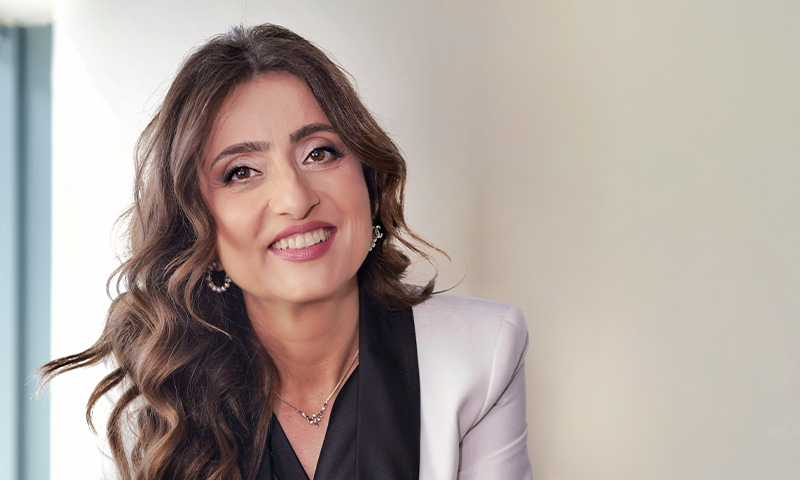
What are your thoughts on diversity and inclusion? How important is it to have authentic conversations with leaders, professionals, and changemakers to create more acceptance across the globe?
Organizations over the globe have heightened the focus on diversity and inclusion. This is not only because it’s the right thing to do but because it has considerable financial and business benefits.
Hence, diversity and inclusion should not only be looked upon as an HR initiative or an HR policy, but should become a part of every organization’s strategy, culture, and way of operation. It is imperative that DE&I strategy must be driven from the top and every leader in the organization takes accountability in embedding DE&I through their actions and behaviors, with equal responsibility lying on all employees.
Nancy, please tell us about your professional and personal background.
My professional journey is a journey of ambitious courage. Right from the beginning, it was all about pushing boundaries and taking a leap of faith through all the career pivots that have happened to date.
Making a difference in people’s lives and bringing peace and harmony to the world are the keys goals that drive me. And only when you are consistent in what you say and what you do, you will bring your purpose to life and project authenticity.
I hold several entrenched values that connect my personal and professional paths.
There is no better way to manifest my purpose and passion than through coaching and creating and leading leadership development initiatives. Evoking transformation for individuals and teams and witnessing them flourish amidst all the disruption that is taking place in our world gives me great fulfilment.
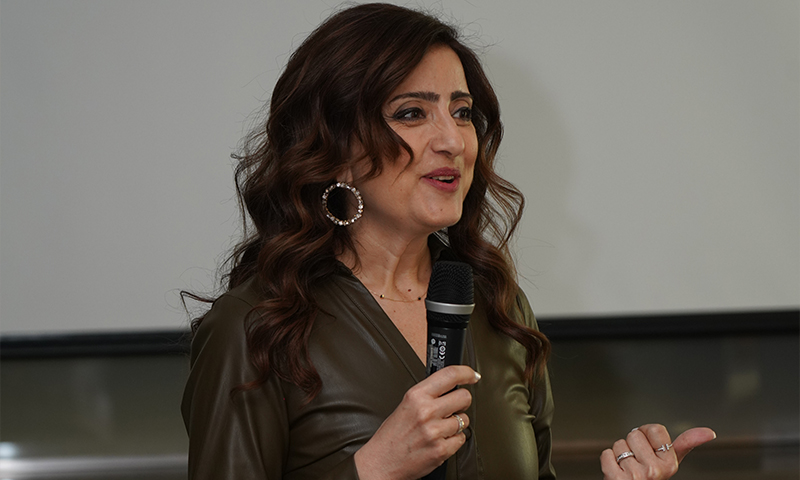
Which key tips would you recommend to business leaders to bridge the generational gap at the workplace?
A business will always be the sum of its own parts which is why it’s important to have a diverse team from all aspects including diverse generations. Diversity creates the mix but it’s important to make this mix work through inclusion. One of the key things is to approach it with beginners’ mind: accepting ideas, being open and receptive to learning and altering leadership style as needed.
If we look at this closely, we find that it all boils down to who we are as humans and what motivates us; and each one is unique in their preferences, regardless of the generations. Generations are just age stages that we all will pass through as humans. It is, however, important to address the uniqueness of every individual and put efforts into inclusion and helping all employees feel a sense of belonging.
Likewise, listening to the needs and motivations of each generation is key. It is rather essential to understand what matters to them and the differences in the way of work among them. That will give managers the starting point to creating high performing teams.
It is also important to note that Gen Z might have some skills gap when it comes to social skills because of the social isolation during the pandemic as they started entering the workplace about five years ago- as identified by Gartner’s report on ‘Tackling 2023 Future of Work Trends’. Therefore, emphasizing professionalism and relationship building and alignment to the values and culture of the organization through connections with the managers are keys for proper integration.
Another essential strategy is to have a strong mentoring program in place where all generations can exchange knowledge and benefit from each other’s knowledge and experience. I am a strong believer in the power of mentoring as it benefits mentees and mentors alike.
Reverse mentoring has a huge positive impact when organizations and leaders are open to it; the younger generation has a lot to offer that will benefit other generations when given the chance. This will help in creating a healthy collaboration and learning culture within the team and the organization.
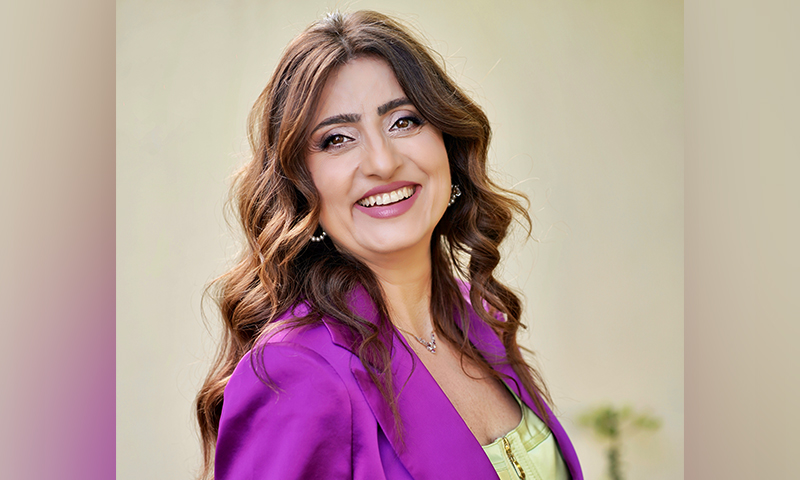
Where or whom do you seek motivation and inspiration from? How?
I find motivation from within. I set personal goals, stay true to my purpose and values, and cultivate a sense of direction in my life.
My mother was and remains to be my inspiration; her intuition, care, resilience, persistence, and drive for excellence were some of the qualities that I try to emulate in my life. By observing her, I gained a deeper appreciation of the value of hard work, perseverance, and determination in achieving success. The lessons I learned from her continue to inspire me even when faced with difficult challenges.
What has been your most career-defining moment that you are proud of?
There were several; however, two related though years apart moments were when I was selected to lead newly introduced functions once at a regional level and once at a global level at two different organizations where I was working at the time.
Taking on new challenges, bringing innovative ideas, activating new bold initiatives, and strengthening solid relationships with stakeholders beyond geographical boundaries were few talents that came into play and were strengthened through these experiences. It was fulfilling seeing things through from inception to completion.
Where do you see yourself in the next 5 years?
As a leadership coach, my impact on transforming lives and upskilling leaders would be a testament to my dedication to helping others achieve their goals. With a wide coverage over geographies, I would even have greater impact on communities across the world. Through my work, I would not only be helping individuals achieve their full potential, but also making a positive contribution to society as a whole. I see myself manifesting my purpose through the meaningful impact on the world.
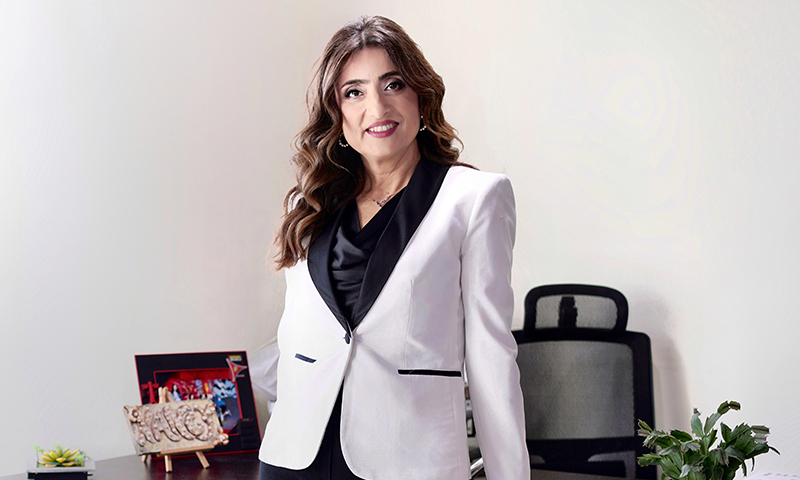
What is your secret to striking a work-life balance?
Perhaps one of the easiest things to say but hardest to do is the ability to say ‘no’; I have immensely strengthened this ability lately and this is what is greatly helping in striking that balance. I do say no to things that are going to derail me from my priorities, and I always weigh my choices and what’s important at a given moment. And my list of priorities includes both professional and personal priorities, including self-care! We have to remember that when we say ‘yes’ to something or someone we are automatically saying ‘no’ to something else or someone else; so, don’t let this ‘someone’ be you! Thus, setting clear boundaries and prioritizing tasks and activities are key so you don’t end up saying ‘no’ to important things.
There isn’t a standard formula for striking that balance, it is an experimental journey that one has to explore what is going to work best.
For me, exercising, getting enough sleep, connecting with nature, and spending time with family and close friends are nonnegotiable necessities, and they are the key to my productivity at work as well. So, I always find time to incorporate these activities into my schedule.
Throughout your career, you have and continue to wear numerous hats and excel in all the roles. What is your secret mantra for being successful?
The crucial factors that have helped my growth over the years are being driven by my purpose, willingness and curiosity towards learning, and remaining open to receiving constructive feedback. I assume the attitude of a traveler when venturing into new things, I am open to explore, curious to learn more, receptive to new perspectives, and admiring without judgment.
I can consider myself as an experimental innovator who is not rigid in the pursuit of my vision, persevere through challenges, and have the ability to cope with the emotional impact of any challenges and failures. I have the willingness of being imperfect.
I am also a fast-paced person with the ability to make an intentional shift to be effective in changing contexts while honoring commitments and going above and beyond to meet them. I am big on collaboration and view its impact on the outcomes as there is no innovation without collaboration.
My main superpowers are that I can react to unexpected challenges and changes by remaining calm and focused; I am fearless in the sense that I feel the fear and do it anyway; and I rely on my intuition and can see through individuals and situations, I listen to the whole system and whole person simultaneously which creates that ease of connection, safety, collective holding space, and bring mutual understanding as well as help in decision-making and envisioning long-term scenarios.
Being persistent is like the glue that sticks everything together and keeps me holding on in the face of changing circumstances.
What piece of advice would you give to aspiring HR professionals?
I would advise aspiring HR professionals to clarify and connect with their purpose and the ‘why’ behind what they do. And be true business partners to the organization by challenging their boundaries and broadening their horizon to understand the business that they are in and the organization strategy to be able to propose innovative solutions and help the organization in transforming its culture for future success. Since, HR professionals play a crucial role in shaping the organization’s culture and maintaining a positive work environment. Cultivating strong relationships with employees through open communication and active listening is also the key in addressing any challenges, and in enhancing employees’ sense of belonging and engagement to go above and beyond and utilize their full potential.


